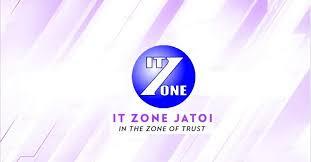US History Global Perceptionof US
U.S. Image Still Poor in the Middle East
Sources of Anti-Americanis
Growing Opposition to Terrorism
Muslim Publics Favor Democracy
Summary: Continuing Challenges, But Promising Signs As Well
Arab and Muslim Perceptions of the United States
Since its inception in 2002, the Pew Global Attitudes Project has surveyed more than 90,000 people in 50 nations, including many Arab and majority Muslim countries. Our most recent 17-nation survey conducted this past spring led to two reports, “U.S. Image Up Slightly, But Still Negative” and “Islamic Extremism: Common Concern for Muslim and Western Publics,” that examined attitudes towards the U.S., as well as a host of other issues. The survey included six majority Muslim countries: Indonesia, Jordan, Lebanon, Morocco, Pakistan, and Turkey. Given that the topic of this hearing is Alhurra, this report focuses on our recent findings in the Arab countries of Jordan, Lebanon, and Morocco, but also addresses findings from the neighboring countries of Pakistan and Turkey.
As our surveys underscore, the U.S. continues to face enormous challenges regarding its public image in Arab and Muslim countries. Anti-Americanism in the region is driven largely by aversion to U.S. policies, such as the war in Iraq, the war on terrorism, and U.S. support for Israel, in addition to the general perception that the U.S. fails to consider the interests of countries in the region when it acts in the international arena. At the same time, however, our findings highlight areas of improvement. U.S. favorability ratings have increased in some countries, and there are signs that support for terrorism is waning. Moreover, there is strong evidence suggesting that Arab and Muslim publics overwhelmingly desire democracy for their countries.
U.S. Image Still Poor in the Middle East
Table: Favorable Opinion of United StatesPew Global Attitudes surveys of 50 nations in 2002 and 2003 found that the U.S. was less popular in the Middle East than in any other part of the world. Today the U.S. remains largely disliked in the region, although America’s favorability rating has increased significantly in Lebanon, Jordan, and Morocco. Indeed, more Moroccans now hold a positive view of the U.S. (49%) than a negative one (44%). Still, in the other four countries, solid majorities give the U.S. a negative rating. And the relatively high U.S. favorability rating in Lebanon is due largely to the country’s Christian minority. Among Lebanese Muslims, just 22% have a favorable opinion of the U.S.
Table: Favorable Opinion of United StatesPew Global Attitudes surveys of 50 nations in 2002 and 2003 found that the U.S. was less popular in the Middle East than in any other part of the world. Today the U.S. remains largely disliked in the region, although America’s favorability rating has increased significantly in Lebanon, Jordan, and Morocco. Indeed, more Moroccans now hold a positive view of the U.S. (49%) than a negative one (44%). Still, in the other four countries, solid majorities give the U.S. a negative rating. And the relatively high U.S. favorability rating in Lebanon is due largely to the country’s Christian minority. Among Lebanese Muslims, just 22% have a favorable opinion of the U.S.
One hopeful sign for the U.S. is that young people tend to view America somewhat more positively than do their elders. In each of these five countries, those under age 35 give the U.S. a higher favorable rating than do those 35 and older, and the gap is especially large in Turkey (29% favorable among 18-34 year-olds, 17% among those over 35) and Pakistan (28% among 18-34 year-olds, 17% among older Pakistanis).
Also, a modest gender gap is seen in opinions of America. While women are less likely to offer an opinion of the U.S. than are men, when they do they generally have a somewhat more positive opinion. Pakistan has the largest gender gap, with 28% of women and 17% of men saying they have a favorable opinion of the U.S. The exception to this pattern is Jordan, where opinions of the U.S. are equally negative among both men and women.
Sources of Anti-Americanism
Table: Widespread Opposition to U.S.-led War on TerrorOver time, our surveys have found that anti-Americanism around the world is driven first and foremost by opposition to U.S. foreign policy. Four policies are particularly relevant to countries in the region. First, the ongoing conflict in Iraq continues to fuel anti-American sentiments. America’s global popularity plummeted at the start of military action in Iraq, and the U.S. presence there remains widely unpopular. Strong majorities in all five nations where we surveyed believe their country’s decision not to use force in the Iraqi conflict was the right one. Majorities also think the war has made the world a more dangerous place.
Table: Widespread Opposition to U.S.-led War on TerrorOver time, our surveys have found that anti-Americanism around the world is driven first and foremost by opposition to U.S. foreign policy. Four policies are particularly relevant to countries in the region. First, the ongoing conflict in Iraq continues to fuel anti-American sentiments. America’s global popularity plummeted at the start of military action in Iraq, and the U.S. presence there remains widely unpopular. Strong majorities in all five nations where we surveyed believe their country’s decision not to use force in the Iraqi conflict was the right one. Majorities also think the war has made the world a more dangerous place.
Second, the war on terror is perceived negatively in the region; majorities in all five countries oppose U.S.-led efforts to fight terrorism. The 2002 Global Attitudes survey found that the war on terror drew more opposition from Arab and other Muslim-majority countries than from any other part of the globe, and although the degree of opposition in specific countries has fluctuated somewhat over time, the overall picture is clear: the U.S. has not won the battle for Muslim public opinion on this important issue.
Table: Declining Support for TerrorismThird, anti-Americanism is driven by the perception that America acts unilaterally on the world stage. Majorities or pluralities in each of these countries say that in making foreign policy decisions, the U.S. pays either “not too much” or “not much at all” attention to their country’s interests. In Lebanon, there has been some progress on this question – the United States is seen as less unilateralist than it was two years ago. Nonetheless, nearly six-in-ten Lebanese still feel the U.S. does not take their interests into account.
Finally, perceptions of U.S. policy in the Israeli-Palestinian conflict feed anti-Americanism. A 2003 Pew Global Attitudes poll found that enormous majorities in Arab and Muslim countries (at least 90% in Jordan, the Palestinian Authority, Morocco, and Lebanon) believed the U.S. favors Israel too much. Although our most recent survey did not ask this same question, it did find strongly negative views towards Jews in the Arab world. For example, no respondents in either Lebanon or Jordan had a favorable view of Jews (on the other hand, 91% of Lebanese and 58% of Jordanians had a favorable view of Christians).
Growing Opposition to Terrorism
Despite the continuing unpopularity of the U.S.-led fight against terrorism, there is growing evidence that support for terrorism is waning among Muslim publics. Support for violence against civilians in the defense of Islam has declined significantly in several countries, including a dramatic 34 point drop in Lebanon since 2002. There have also been smaller, but still important, decreases in Morocco and Pakistan. Meanwhile, in Turkey, support for terrorist acts has remained at a relatively low level. On the other hand, Jordan, where support has risen by 14 points, is an exception to the overall pattern.
Despite the continuing unpopularity of the U.S.-led fight against terrorism, there is growing evidence that support for terrorism is waning among Muslim publics. Support for violence against civilians in the defense of Islam has declined significantly in several countries, including a dramatic 34 point drop in Lebanon since 2002. There have also been smaller, but still important, decreases in Morocco and Pakistan. Meanwhile, in Turkey, support for terrorist acts has remained at a relatively low level. On the other hand, Jordan, where support has risen by 14 points, is an exception to the overall pattern.
Table: Confidence in bin Laden as World LeaderMuslim publics are somewhat more inclined to support suicide bombings when carried out against Americans and other Westerners in Iraq, although here, too, the proportions considering such actions justifiable have declined over the last year. Only in Morocco does a majority still find such bombings justifiable, although that percentage is down substantially from March 2004.
In both Jordan and Lebanon, nearly half of Muslims support suicide bombings against Westerners in Iraq, but in Jordan support has declined from 70% a year ago. In Turkey and Pakistan, fewer than three-in-ten now say suicide attacks can be justified. In Morocco, Pakistan and Turkey, men are significantly more likely than women to find such actions justifiable.
Table: Islamic Extremism a Threat to Your Country?Another sign that support for terrorism may be fading is that opinions of Osama bin Laden have turned more negative over the last two years in Morocco, Lebanon, and Turkey. In Morocco, the decline has been particularly steep – in 2003 roughly half of Moroccans expressed confidence in bin Laden to do the right thing in world affairs; today, about one-in-four hold this view. Troublingly, however, majorities in Jordan and Pakistan still have some or a lot of confidence in bin Laden, and support for the Al Qaeda leader has actually grown in these two countries.
Support for terrorism may be declining in part because Arab and Muslim publics see Islamic extremism as a threat to their own country. This is especially true in Morocco, Pakistan, and Turkey, as well as among Lebanese Christians. In contrast, relatively few Jordanians or Lebanese Muslims are concerned about domestic extremism.
Table: Democracy Not Just a Western WayThese concerns about extremism do not imply, however, that citizens in the region reject a role for Islam in politics. In each of these countries except Jordan, majorities or pluralities see Islam playing a larger part in politics than it did a few years ago, and those who see Islam taking a bigger role tend to view this as a good development, although Turks, with their strong tradition of secularism, are more divided on this issue.
Muslim Publics Favor Democracy
Since the first Pew Global Attitudes Survey in 2002, we have consistently found broad support for democracy among predominantly Muslim publics. And on our most recent survey, overwhelming majorities of Jordanians, Lebanese, and Moroccans say democracy is not just a Western way of governance, and that it can work in their countries. Although there is less agreement on this in Pakistan and Turkey, pluralities there still believe democracy can work in those countries. Moreover, our 2002 survey found widespread support in the region for specific features of a democratic system, such as the right to criticize the government; honest, multiparty elections; a fair judiciary; and a free, independent media.
Since the first Pew Global Attitudes Survey in 2002, we have consistently found broad support for democracy among predominantly Muslim publics. And on our most recent survey, overwhelming majorities of Jordanians, Lebanese, and Moroccans say democracy is not just a Western way of governance, and that it can work in their countries. Although there is less agreement on this in Pakistan and Turkey, pluralities there still believe democracy can work in those countries. Moreover, our 2002 survey found widespread support in the region for specific features of a democratic system, such as the right to criticize the government; honest, multiparty elections; a fair judiciary; and a free, independent media.
Graph: Prospects for Democracy in the MideastPeople are divided, however, over the future of democracy in the Middle East. A plurality of Lebanese (46%) – and a majority of the country’s Christians (59%) – are optimistic that the Middle East will become more democratic. Meanwhile, Jordanians are divided between those who are becoming more optimistic and pessimistic, while the Turks, Pakistanis, and Moroccans lean toward pessimism (although 34% of Pakistanis offer no opinion).
Among those expressing optimism, a 55% majority in Pakistan gives at least partial credit to U.S. policies for its more hopeful view, as do nearly half of Jordanian and Lebanese optimists. But in both Morocco and Turkey, 51% of optimists give no credit to the U.S. Among pessimists, large majorities (ranging as high as 75% in Lebanon, 83% in Turkey to an astounding 98% in Jordan) lay the blame for their lack of optimism at least partly on U.S. policies.
Graph: U.S. Position on Democracy in Our CountryDespite widespread distrust of America among Arabs and Muslims, many do believe the U.S. wants to see countries in the region move toward democracy. Clear majorities in Morocco and Lebanon believe the U.S. is backing democracy in their countries. But Jordanians and Pakistanis are nearly evenly split over whether America favors democracy in their nations (the question was not asked in Turkey). Across all four countries, those who believe the U.S. backs democracy are considerably more likely to have a favorable view of America.
Summary: Continuing Challenges, But Promising Signs As Well
There remains considerable antipathy toward the U.S. in Arab and Muslim countries. U.S. favorability is relatively low, and anti-Americanism is driven by negative perceptions of, and opposition to, U.S. foreign policies, such as the war in Iraq, the war on terror, U.S. support for Israel, and U.S. unilateralism.
There remains considerable antipathy toward the U.S. in Arab and Muslim countries. U.S. favorability is relatively low, and anti-Americanism is driven by negative perceptions of, and opposition to, U.S. foreign policies, such as the war in Iraq, the war on terror, U.S. support for Israel, and U.S. unilateralism.
At the same time, however, there are hopeful signs. There has already been some progress in Jordan, Lebanon, and Morocco, and some population groups, including young people and women, are more favorably disposed toward the U.S. than others. Moreover, support for terrorism and terrorist leaders is declining among many in the region. And finally, there is strong evidence that citizens throughout the region aspire to democratic governance.
While this represents some progress, it will be difficult to bring about a major improvement in America’s image unless we can demonstrate to our critics in the Muslim world that they are wrong about our intentions and policies. And in this regard, actions will always speak louder than words. That certainly was the lesson in Indonesia, where the image of America rebounded in response to our Tsunami aid efforts.
Short of major policy initiatives, there appear to be limits on how much U.S. communication efforts in the region can achieve. Given the magnitude of negative attitudes in the Muslim world, such efforts will be mostly defensive, making the best of a bad situation – correcting misinformation, softening hostility by emphasizing the well-regarded aspects of America. These are likely to bring about only marginal changes in America’s image. In the end, it is only reaction to major policies that can significantly move the needle.

.PNG)


.PNG)









0 Comments
We Are Really Thank Full For Your Response On Our Work...!!!!
EmojiFollow Us For More Informational Data We 'll Be Great To Hear More Suggestions & Ideas From Your Side To Improve Our Working....
Sharing Is Caring....
Suggest Your Friends & Family (Teachers,Students,Brother,Sister or Any Other Relationship) To Visit www.itzonejatoi.blogspot.com
Regards,
Team
ITZONEJATOI